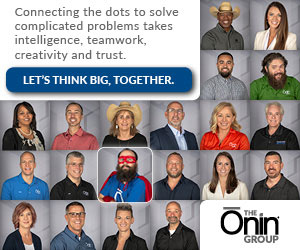Innovation and continual improvement are the names of the game for light industrial and manufacturing companies, but one key area of business tends to get left behind.
In a highly technical world, perfecting efficiencies, facilitating new technologies, and forging more productive business partnerships tend to be prioritized over people development. In a stormy labor force environment, that lack of investment has consequences.
High employee turnover combined with more baby boomers exiting the workforce means key knowledge, from technical skills to soft skills to institutional knowledge, is exiting organizations. As these necessary skills trickle out of an organization’s workforce, turnover actually tends to accelerate, leaving increasingly stressed-out workers behind who are less equipped for their jobs than ever. So, how can companies escape this cycle of knowledge loss, turnover and burnout?
Part of the answer includes investing in a learning and development culture, which creates a rich foundation for individual and institutional growth. Building a learning and development environment is something Ōnin has worked hard to create over the last year.
We’ve built a strong sales development program that helps our sales drivers act as true problem solvers for our clients. Then, we shifted focus to developing recruiters so they can more effectively impact the lives of Teammates (which feeds into lowered employee turnover at client sites).
But, for many companies, beginning to craft this culture can feel overwhelming. Here are a few things we’ve learned about building a learning and development culture:
- Develop a unified language: Every industry has its own set of terms. From technical terms to words that relate to a specific company phenomenon, building a language that unites everyone across departments and disciplines helps everyone stay on the same page. What’s more, a unified language perpetuates continued learning and inter-departmental collaboration.
- Create a more meaningful job: A rich learning and development culture helps workers contextualize their job and understand why their work matters. Ideally, this will help workers connect the dots between their daily work and their personal goals. When companies meaningfully contextualize jobs for employees, employee retention tends to improve organically.
- Craft a rich history: In the manufacturing and light industrial space, companies are more than the things they make, move or process. By communicating your company’s unique history, culture and institutional values, you have the ability to craft a rich environment that can fascinate and enrich the lives of all who work there.
There are no easy answers to today’s workforce issues, but when companies combine a strategic job offer with a rich learning and development culture, turnover organically decreases as workers understand why working at your company helps them build a better life.






